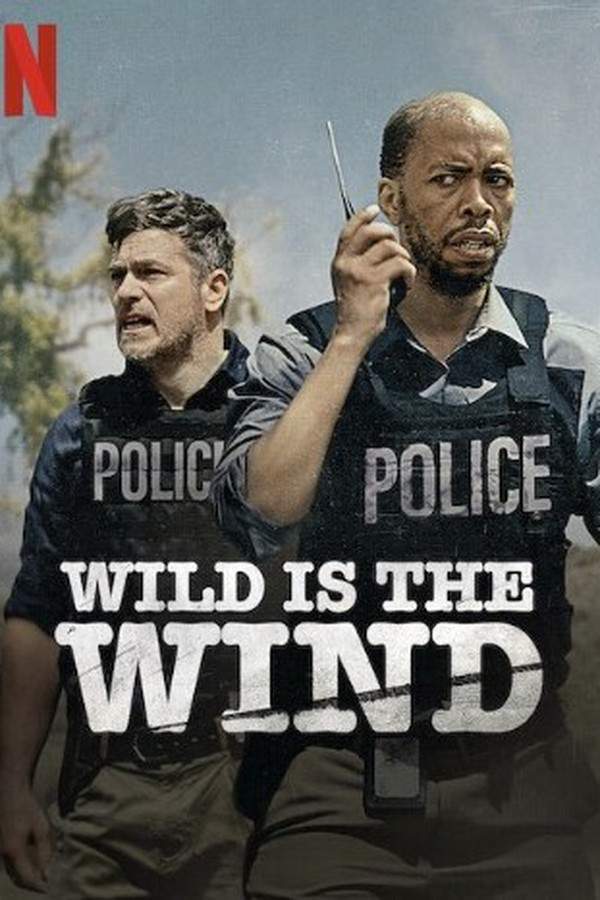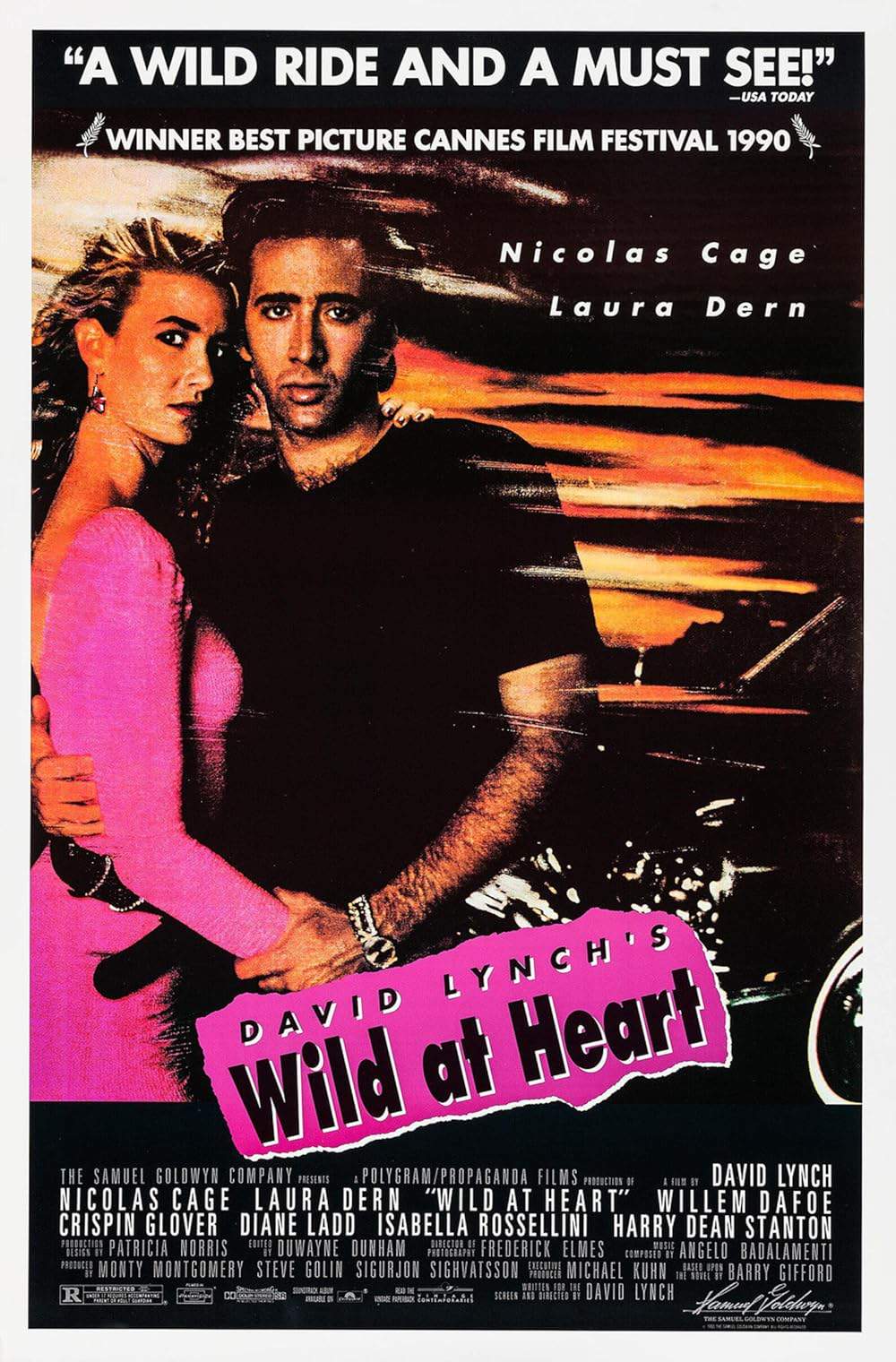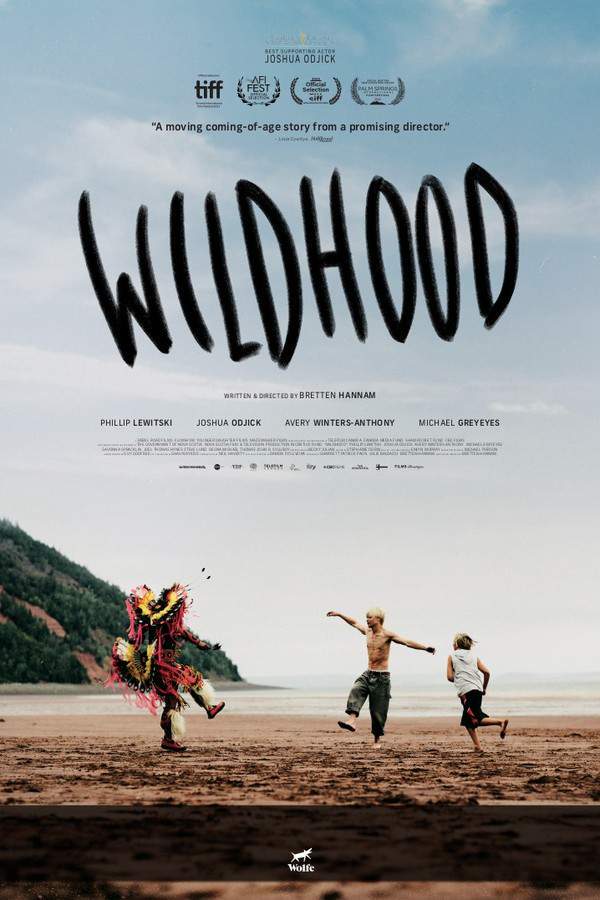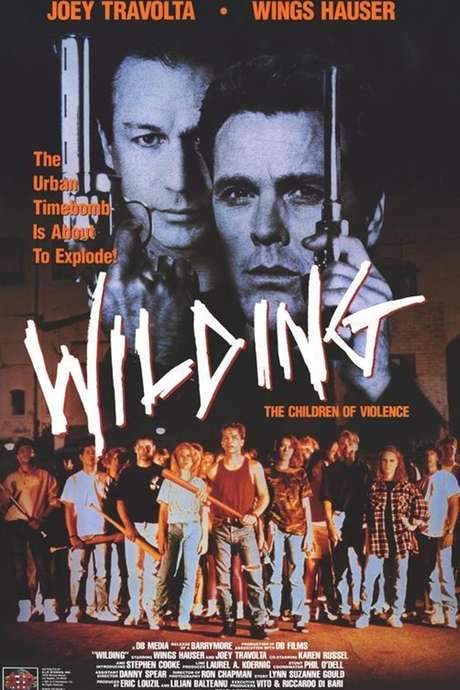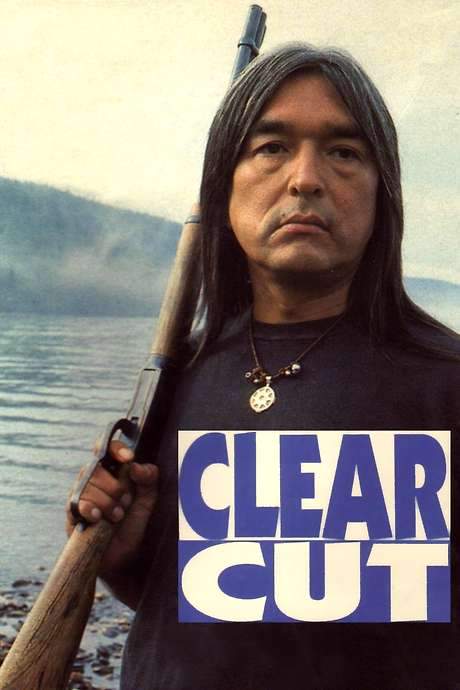Wild Indian 2021
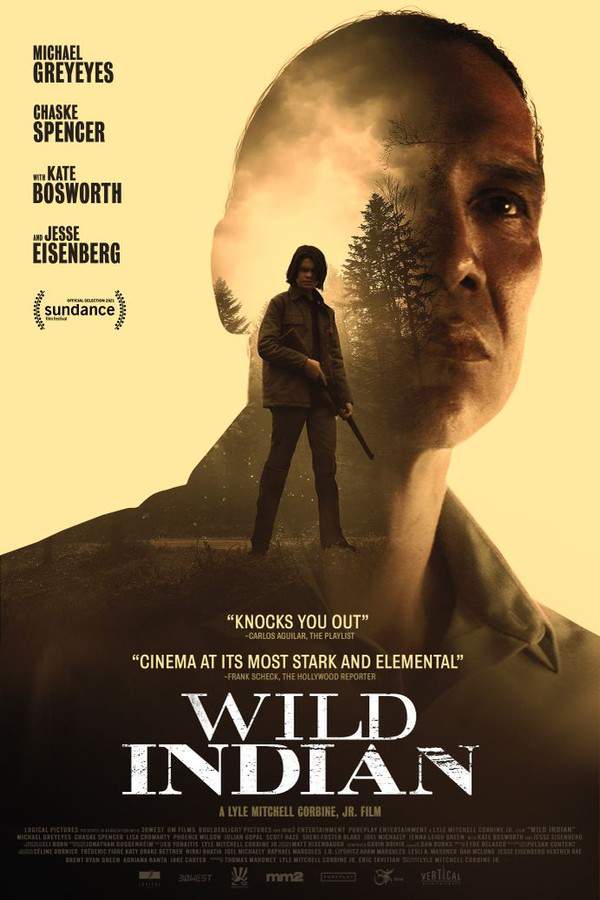
Years after a traumatic event, Michael, a Native American man, struggles to outrun his past. When an old acquaintance reappears seeking retribution, he's forced to confront a deeply buried secret that threatens his hard-earned peace. He must protect his marriage and his position at work while dealing with the resurfacing consequences of a decades-old tragedy and the fracturing of his own identity.
Does Wild Indian have end credit scenes?
No!
Wild Indian does not have end credit scenes. You can leave when the credits roll.
Meet the Full Cast and Actors of Wild Indian
Explore the complete cast of Wild Indian, including both lead and supporting actors. Learn who plays each character, discover their past roles and achievements, and find out what makes this ensemble cast stand out in the world of film and television.
External Links and Streaming Options
Discover where to watch Wild Indian online, including streaming platforms, rental options, and official sources. Compare reviews, ratings, and in-depth movie information across sites like IMDb, TMDb, Wikipedia or Rotten Tomatoes.
Ratings and Reviews for Wild Indian
See how Wild Indian is rated across major platforms like IMDb, Metacritic, and TMDb. Compare audience scores and critic reviews to understand where Wild Indian stands among top-rated movies in its genre.

The Movie Echo Score
Wild Indian presents a daring, character‑driven drama that divides opinion. Critics commend its stark visual style and ambitious themes, yet many note uneven narrative focus and pacing issues. User feedback similarly highlights strong performances, especially by Michael Greyeyes, while criticizing slow pacing and underdeveloped plot threads. The film’s atmospheric strengths are offset by structural weaknesses, resulting in a mixed yet thought‑provoking experience.
The Movie Echo Score Breakdown for Wild Indian

Art & Craft
In terms of art and craft, the film displays a stark, elemental visual approach praised by several critics for its impressive cinematography and deliberate framing. The production design conveys a raw, atmospheric tone that supports the narrative’s tension. However, some reviewers point to uneven editing and moments that feel under‑polished, tempering the overall craftfulness.

Character & Emotion
When evaluating character and emotion, performances receive notable praise, particularly Michael Greyeyes’s nuanced portrayal, which many consider a highlight. Supporting actors such as Chaske Spencer also garner positive notes. Conversely, criticism arises around the protagonist’s likability and the limited screen time of Jesse Eisenberg, which some view as a miscast distraction, resulting in a mixed character reception.

Story & Flow
The story and flow draw attention for its ambitious premise, intertwining past trauma with present consequences. Critics acknowledge its thought‑provoking themes but frequently cite a scattered structure and lack of narrative focus, describing the film as unfocused and structurally disjointed. User commentary echoes these concerns, highlighting slow pacing, ambiguous plot points, and an unsatisfying resolution that undermines the film’s intended impact.

Sensory Experience
In terms of sensory experience, the film’s cinematography is widely praised for its evocative color palette and composed framing, while the score by Gavin Brivik receives commendation for its brooding atmosphere. Sound design subtly reinforces tension throughout. Nonetheless, some viewers find the overall auditory mix subdued, and the visual style occasionally feels overly muted, tempering the sensory impact.

Rewatch Factor
The rewatch factor appears limited, as many reviewers note that the film’s uneven pacing and unresolved narrative threads reduce its replay appeal. While strong performances and striking visuals can motivate a second viewing for some, the prevalence of ambiguous plot elements and a perceived lack of closure make the experience less compelling on repeat watches.

74
Metascore
5.7
User Score


90%
TOMATOMETER

57%
User Score

5.8 /10
IMDb Rating

55
%
User Score

3.2
From 1 fan rating

4.67/5
From 3 fan ratings
Take the Ultimate Wild Indian Movie Quiz
Challenge your knowledge of Wild Indian with this fun and interactive movie quiz. Test yourself on key plot points, iconic characters, hidden details, and memorable moments to see how well you really know the film.
Wild Indian Quiz: Test your knowledge of the film Wild Indian with this 10-question quiz.
What year does the film's main storyline primarily take place?
1988
2001
2021
Show hint
Awards & Nominations for Wild Indian
Discover all the awards and nominations received by Wild Indian, from Oscars to film festival honors. Learn how Wild Indian and its cast and crew have been recognized by critics and the industry alike.
37th Film Independent Spirit Awards 2022


Best First Feature
Full Plot Summary and Ending Explained for Wild Indian
Read the complete plot summary of Wild Indian, including all major events, twists, and the full ending explained in detail. Explore key characters, themes, hidden meanings, and everything you need to understand the story from beginning to end.
In a powerful opening sequence, a Native American man grapples with the brutal realities of life, as he hunts in the woods while his wife succumbs to smallpox. Makwa Gi-Zheg, a young Ojibwe boy living in Wisconsin during 1988, faces not only the torment inflicted by his father but also the bullying that occurs at school. His sole source of comfort is his cousin Teddo, who stands by him as they navigate the complexities of childhood. As Makwa begins to develop feelings for a girl, he finds himself envious of James, who effortlessly captures her attention.
In a poignant moment, Makwa’s teacher, a priest, delivers a sermon that resonates deeply, stating that a tortured spirit must be free before God, and that one’s refusal to take accountability invites suffering that can spread like a plague. Under Teddo’s guidance, Makwa learns how to shoot a rifle, a lesson shaded by the darker impulses building within him. As tensions erupt, he holds a kitchen knife ominously above his father before witnessing James walking through the woods, where he calmly takes aim and shoots him. Together with Teddo, he buries James and grapples with the chilling reality of his actions.
Fast forward to 2019, Makwa has reinvented himself as Michael Peterson, a businessman in California with a baby son and a white wife, Greta. He takes pride in his braided hair, seeing it as an essential part of his identity. Despite his efforts to appear unfazed by his wife’s pregnancy announcement, a darker side of him emerges at a club where, during a disturbing encounter with a stripper, he succumbs to his inner turmoil while reciting Hail Marys.
Meanwhile, Teddo is released from a decade-long prison stint for drug offenses and moves in with his sister Cammy, who has her own young son, Daniel. He feels the weight of missed family connections over the years, realizing Makwa has not been around for significant events. His past is still haunting him, prompting him to confront Lisa, James’ mother, in a moment fraught with emotional desperation.
Eventually, Makwa and Teddo meet unexpectedly. Tensions escalate as Teddo reveals he has confessed to various sins and, in a tragic turn, attempts to turn the gun on himself but fails to go through with it. In the heat of the moment, triggered by unnamed resentments, Makwa ends up shooting Teddo in an act of self-defense.
The legal consequences of that fateful encounter loom over Makwa as he faces a Wisconsin investigator regarding James’ long-ago disappearance. Tension builds as he visits a bedridden Lisa in the hospital, where he attempts to sway her opinion by portraying Teddo as mentally unstable and unreliable. Despite Makwa’s assurances of innocence, Lisa, grounded in her loss, is inclined to believe Teddo’s claims, igniting a clash of truths.
As the story unfolds, Makwa finds himself trapped in a web of guilt and fear, exacerbated by the prosecutor’s investigation that leaves him feeling increasingly vulnerable. The prosecutor’s dismissive attitude toward James’ death as another missing case within the Native American community adds to Makwa’s turmoil.
In the culmination of his dual life, Makwa is faced with personal and professional crises, worsened by the unearthing of his past actions. While he receives a promotion, he cannot escape the weight of his bullet wound nor the terrifying memories that return to haunt him. The narrative closes with a stark parallel, returning to the Native American man with smallpox beside his deceased wife as Makwa collapses onto a beach, embodying a profound sense of loss and the cycle of violence that echoes through generations.
Uncover the Details: Timeline, Characters, Themes, and Beyond!

Coming soon on iOS and Android
The Plot Explained Mobile App
From blockbusters to hidden gems — dive into movie stories anytime, anywhere. Save your favorites, discover plots faster, and never miss a twist again.
Sign up to be the first to know when we launch. Your email stays private — always.
Watch Trailers, Clips & Behind-the-Scenes for Wild Indian
Watch official trailers, exclusive clips, cast interviews, and behind-the-scenes footage from Wild Indian. Dive deeper into the making of the film, its standout moments, and key production insights.
Wild Indian Themes and Keywords
Discover the central themes, ideas, and keywords that define the movie’s story, tone, and message. Analyze the film’s deeper meanings, genre influences, and recurring concepts.
Wild Indian Other Names and Titles
Explore the various alternative titles, translations, and other names used for Wild Indian across different regions and languages. Understand how the film is marketed and recognized worldwide.
Similar Movies To Wild Indian You Should Know About
Browse a curated list of movies similar in genre, tone, characters, or story structure. Discover new titles like the one you're watching, perfect for fans of related plots, vibes, or cinematic styles.
Quick Links: Summary, Cast, Ratings, More

What's After the Movie?
Not sure whether to stay after the credits? Find out!
Explore Our Movie Platform
New Movie Releases (2026)
Famous Movie Actors
Top Film Production Studios
Movie Plot Summaries & Endings
Major Movie Awards & Winners
Best Concert Films & Music Documentaries
Movie Collections and Curated Lists
© 2026 What's After the Movie. All rights reserved.


















